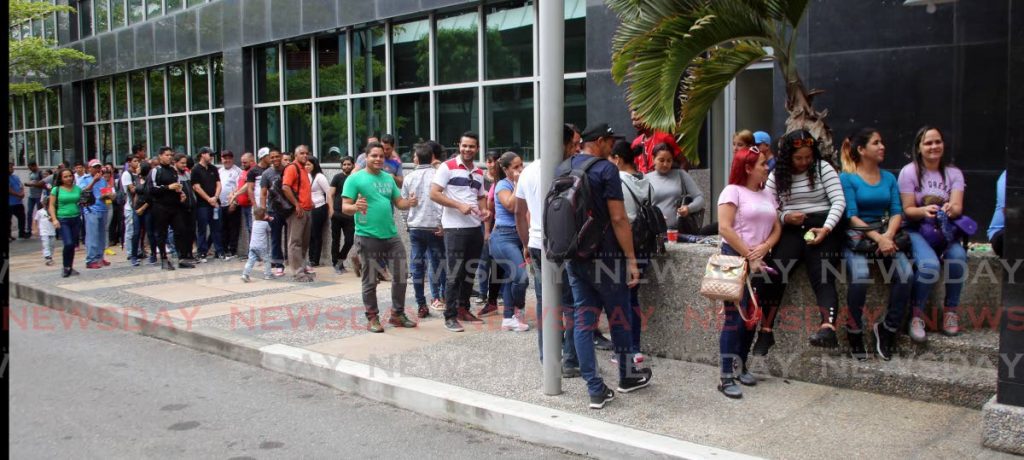Venezuelans torn between homeland and TT

Venezuelans in TT are hopeful 2020 will see a change in government in their South American homeland.
Most of the more than 16,000 fled their country because of the policies of president Nicolas Maduro and his regime which has been challenged by opposition leader Juan Guaido.
“There are already more than four million Venezuelans who are living in other countries because of the social and economic situation, that is why the first thing we all think of as goals for this new year is that Nicolas Maduro's regime falls. We all want to go back to our house,” said Alismar Gonzalez.
On Sunday, Guaido seeks to be re-elected president of the National Assembly of Venezuela. When he won last year, Guaido declared himself the president of Venezuela and was supported by the United States but even with this support Maduro remains in power.
Gonzalez, 19, who left Venezuela 15 months ago longs to return home. She has not seen her parents for the past two Christmases.
“My dream is to be able to return with my family, I hope this year can come true, I miss my house, my life and I want to continue my studies,” she added.
As the first six months of the one-year long amnesty passes, Venezuelans also wonder what is next for them in TT. Access to education is what they hope will be granted. Few young people can study for a university degree in this country and children have also not been able to enter the public education system. The Catholic Church, however, has said it wants to enrol Venezuelan children in Catholic schools and will seek permission to do so from the Education Ministry.
“Education is a universal right for everyone in the world. In other countries where Venezuelans are, they are allowed to study. In TT, our children suffer for not being able to educate themselves,” said Juan Carlos Malave.
He recognises that language is a fundamental issue, but considers that it is also a point in favour of the education of Venezuelan children.
"The local government can approve measures to help us open schools for our children to learn English, that is a significant advance in the training of children," he said.
There are no official figures on how many Venezuelan boys and girls are in TT.
Several organisations have created educational programmes with support from the Catholic and Christian churches, the UNHCR and the Living Water Community.
Another key issue for Venezuelans is their legal status. During the registration process last June they were allowed to work for a year in TT. But the slow approval and delivery of registration cards, which continues into this year, is worrisome for them. In December, the immigration division advised Venezuelans to visit their offices to collect the cards.
"We are in uncertainty, for now we know that work permits begin to expire in June, but from then on we do not know what will happen to us," said Mariangel Benitez.
There are also increasing reports that some hospitals and health centres are now refusing to attend to Venezuelans when they seek medical care.
“There is a work permit that gives us legality, that implies that we pay health tax in our jobs, so we have the right to be treated in hospitals, not just for emergencies, in everything that our health deserves, we are human beings,” said Benitez.
The lack of news from the government also affects their plans.
"The vast majority of those who came to TT want to return to Venezuela, but as long as the conditions there continue to be bad, we cannot return, our families need us and that is why we are worried about our future this year here," she said.


Comments
"Venezuelans torn between homeland and TT"